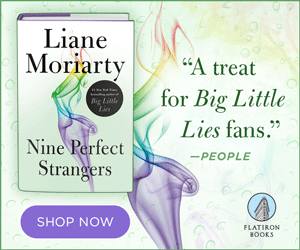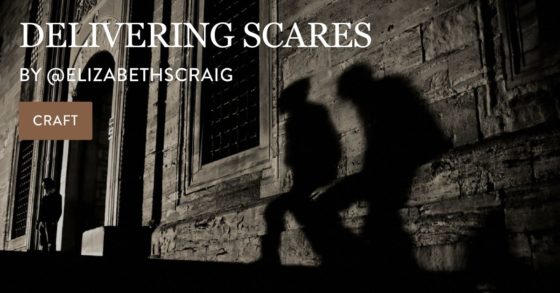Monday, December 31, 2018
Wednesday, November 28, 2018
Article on Michigan Murder and Mayhem: 4 Ways to Explore Voice in Your Fiction Writing
Saturday, November 24, 2018
Article on Michigan Murder and Mayhem:15 of Literature’s Most Villainous Names
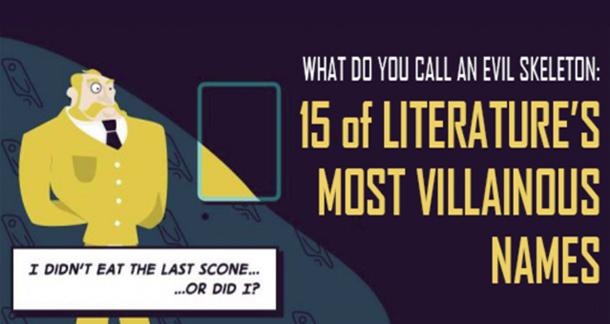
Whether they hail from Disney or Dickens, all great villains have something in common: a malevolent, terrifying name. One that strikes fear into your heart from the first time you hear it, making you think, “How in the world did someone come up with that name?”
Some of these may look familiar, but they’ll still send a serious shiver down your spine. Read on to relish 15 of the best villainous names in literature, sure to inspire dread (or at the very least a good Halloween costume).
Wednesday, November 21, 2018
Monday, November 19, 2018
Article at Michigan murder & Mayhem: Cliffhangers: Is the Suspense Worth It?
*Slams down a mug of tea, looks bitterly off into the distance* You want to know what I hate? (You probably don’t, but you’ve gotten this far). Cliffhangers.
To emphasize why I don’t like them, I could just end the article here, or, like, three sentences ago. But I do have a wordcount to fulfill, so by gum, I’m going to talk about cliffhangers.
I think, in most cases, it’s super lazy writing, or rushed series-creating. The author pitched a single story to an agent, who then said, “Let’s make this into three books!” And the author panicked while tripling the size of a single story. “Shoot, in my original draft, this is where I put my climax…um…to be continued. Yeah, that works.”
Obviously, that’s not the case for every cliffhanger in existence. There are some good ones out there. I can’t think of any, but I know they’re there. I’d also argue that there are genuinely good ways to use most literary techniques.
Sunday, November 18, 2018
How to approach writing a villain Protagonist?
How to write a hero when they are an anti-hero.
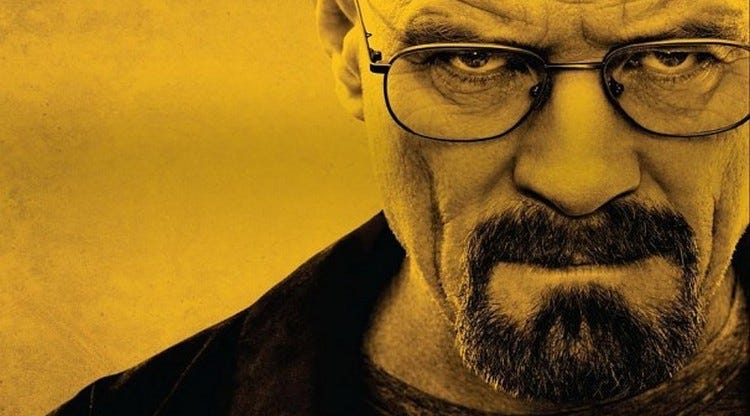
A question from Ryan Covert:
How about a Schrader-esque analysis/discussion on how to approach the writing of an anti-hero?
A villain as the story’s protagonist. Obviously this is more of an advanced screenwriting theory, as well as probably something that has better roots in independent cinema, but I’m about to tackle such a scenario and a few pointers, ideas, or advice would be great.
Thoughts?
Good question, Ryan. Although the particulars would depend upon the genre of your story and whether the villain is somehow redeemed as a result of what happens in the story (Road to Perdition) or ends up in a ‘negative’ state (Scarface), the basic approach is, I would think, very much the same as how you develop any Protagonist character.
Thursday, November 15, 2018
Article at Michigan Murder and Mayhem: Create Killer Twists: Learn How to Redeem Your Villain

You might think a villain can’t be redeemed. After all, they’re sinister and twisted and think killing people is a post-dinner dessert choice. But even villains are people, and, no matter how coal-crusted it gets, they have a heart buried somewhere inside their ribs. Besides, readers love a good twist and what’s better than a villain suddenly seeing the light?
What is a Villain Redemption Arc?
Wednesday, November 14, 2018
Sunday, November 11, 2018
Article at Michigan Murder and Mayhem: Consumer Protection as an Element in Crime Fiction: @mkinberg
But Safety Comes First!*
 For many years, there’ve been laws and policies that are designed to protect consumers. Whether they sell food, homes, or just about anything else, companies are usually bound by legal requirements to make their products and services safe. It wasn’t always that way, of course. But today, most countries require that consumers be protected from danger and fraud. And there are watchdog groups, government agencies, and others whose job it is to make sure that happens.
For many years, there’ve been laws and policies that are designed to protect consumers. Whether they sell food, homes, or just about anything else, companies are usually bound by legal requirements to make their products and services safe. It wasn’t always that way, of course. But today, most countries require that consumers be protected from danger and fraud. And there are watchdog groups, government agencies, and others whose job it is to make sure that happens.
Consumer protection plays a big role in people’s lives. Whenever you buy food, take medication, apply for a loan, or get in your car, the company providing the product or service is supposed to take measures to assure your safety. It doesn’t always happen, but that’s supposed to be the goal. Consumer protection is an issue in crime fiction, too. There are all sorts of possibilities for an author when you’ve got companies who are supposed to take safety measures (that may be costly), and consumers who may be at risk (or may be trying to take advantage of a company).
Saturday, November 10, 2018
Article at Michigan Murder and Mayhem: @StephenKing: Crime Writer: @GiveMeYourTeeth @CrimeReads
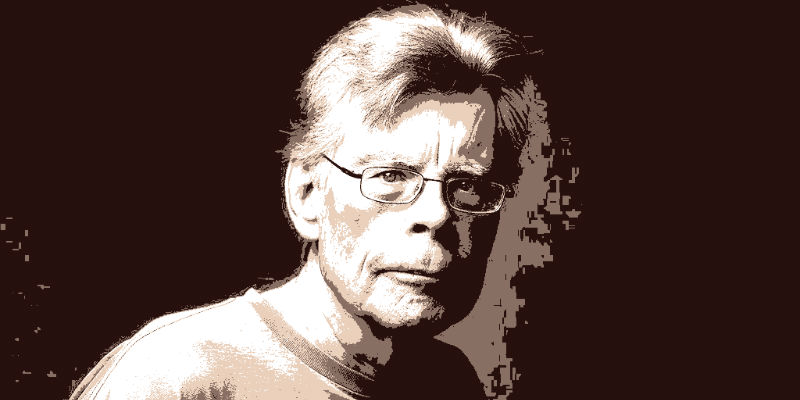
STEPHEN KING: CRIME WRITER
Stephen King's Crime Influences and Crime-Laced Novels
When news of Stephen King’s latest novel, The Outsider, first broke, the horror community found themselves divided into two camps: those willing to welcome this new title with the same enthusiasm as his previous publications, and those disappointed that King had once again decided to release something under the crime umbrella. Maybe this latter group figured he’d gotten the genre all out of his system now that he’d concluded his Bill Hodges trilogy about an ex-cop tracking down a serial killer (Mr. Mercedes, Finders Keepers, and End of Watch) and he would finally return to his horror roots. Which is odd, because while, yes, The Outsider is a crime novel, it also clearly falls under horror. Nearly every book can be classified under multiple genres. It’s what makes them interesting. And horror and crime? I can’t think of a more exciting tag team.
Stephen King knows crime. He grew up mainlining pulp legends like Richard Stark and John D. MacDonald. He was a goddamn noir geek, if you want to know the truth. When MacDonald agreed to write the introduction for King’s debut collection, Night Shift, he nearly pissed himself. Read any interview or essay where King discusses his early inspirations, and you’re bound to find numerous hardboiled writers’ names machine-gunned out as a response. His books are littered with references to his writing heroes. Without crime fiction, there is no Stephen King. It has inspired his rage against the system, his attitude toward certain political states of mind. One has to wonder what King’s approach to writing would be like if he hadn’t grown up devouring pulp fiction. At the very least, I suspect his output wouldn’t have exhibited such an exuberant frequency.
Friday, November 9, 2018
Article on Michigan Murder and Mayhem: When one of your crime series is more popular than the other
I Prefer You*
 Many crime writers have more than one series. This lets them explore different characters and plot lines. Having more than one series gives authors other options, too. It also lets them reach out to different audiences.
Many crime writers have more than one series. This lets them explore different characters and plot lines. Having more than one series gives authors other options, too. It also lets them reach out to different audiences.
And that’s what’s interesting. Even ardent fans of an author usually prefer one of that author’s series over the other. While I have no hard data, my guess is that there are several reasons for that, and those reasons interact with one another.
Thursday, November 8, 2018
Article of The Michigan Murder and Mayhem: "The serial killer is our great modern demon."
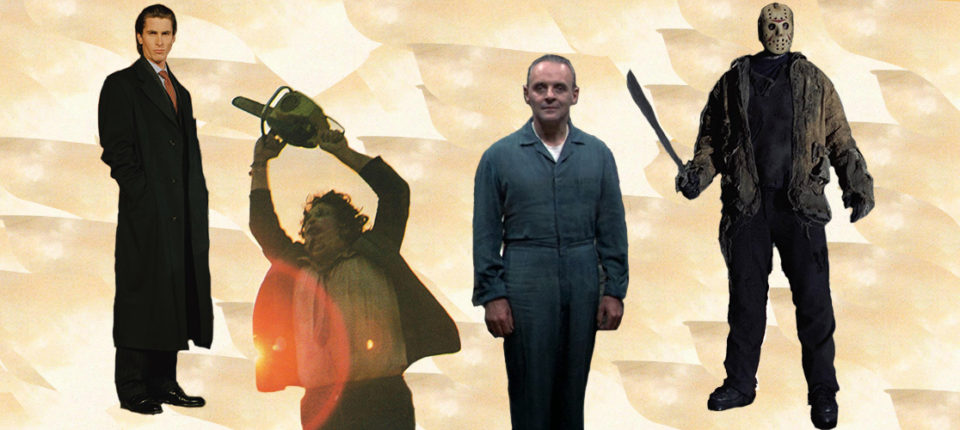
The serial killer is our great modern demon. This figure is a source of recurring fascination in horror, and in popular culture at large. A glance at the ‘True Crime’ shelves of any bookshop will reveal dozens of pop-biographical and quasi-criminological ‘studies’ of notorious serial killers and their unspeakable crimes. Peter Sutcliffe, Ted Bundy, Dennis Nilsen, John Wayne Gacy, Fred and Rosemary West, Jeffrey Dahmer, Henry Lee Lucas, Harold Shipman. We repeat their names as a litany of fear. Often, supernatural power or superhuman genius is ascribed to these figures, generally in direct antithesis to historical reality. Hannibal Lecter, as Thomas Harris’s later novels strongly imply, may well be the Devil himself, a figure of vast learning, intellect, and culture who seems to act out of an authentic sense of categorical species superiority, but real-life serial killers tend on the whole to be poorly educated social misfits. If realism is the aim, then the grim and downbeat Henry: Portrait of a Serial Killer (1990), which drew on the crimes of the drifter Henry Lee Lucas, is a truer representation of serial killers than the hyperbolic The Silence of the Lambs.
Wednesday, November 7, 2018
Article at Michigan Murder and Mayhem: Delivering Scares in Cozies and Other Genres
by Elizabeth S. Craig, @elizabethscraig
Hope everyone had a good Halloween. Apparently I still have scary stuff on the brain. :)
The subjective nature of fear:
I’m not usually a fan of being terrified when I read or watch something. And I think I have a very low-threshold in terms of what’s scary. I recommended the first “Halloween” movie to my father last month (he’d never seen it). He was glad he watched it because he now understands a lot of pop-culture references. But he didn’t think it was scary . . . and the film scared me to death. I think the scariest moment was at the very beginning of the movie when two girls were walking home from school in broad daylight and one of them, and the viewer, sees a creepy man wearing a mask by a row of bushes. It bothered me because it came out of nowhere: it wasn’t even nighttime. And it took place in a public (which I equate to safe) location.
My high school senior daughter had to watch “Texas Chainsaw Massacre” last week at a school film club for extra credit for a sociology class (I know, I was baffled, too, ha). Before she left, I warned her that it was very scary. She came back to tell me that it wasn’t scary . . . it was disturbing.
So I struck out twice on what was scary. To two different generations.
Article of Michigan Murder and Mayhem: Writing Great Villains, Part Two
A couple of weeks ago, I was cruising Netflix when I saw that Luke Cage Season 2 was out. Excited, I texted my wife at work to let her know what we would be watching in the immediate future. Now, I’m not big on binging TV shows. I am far too busy. Besides, if it’s a good show, I need time to process what I’ve just watched.
We watched one or two episodes a day for about seven days. After watching Luke Cage, I have come to the conclusion that the best villains on television are in that show. Why are they so good? I’m glad you asked. In part two of Writing Great Villains, we will go over how to make villains so appealing and real, your readers will root for them! (And mourn when they lose.)
read more http://rmfw.org/writing-great-villains-part-two/
Sunday, August 5, 2018
How To Write Bad Characters

How many ways are there for your characters to fall short of the compelling, three-dimensional ideal? A nearly infinite variety.
Flat. Two-dimensional. Thin. Stereotype. Underdeveloped. Implausible. Placeholder. Caricature. Insufficiently complex. Not fully fledged. Mere outlines. Sketches. Functions, not people. Poorly thought out.
For our purposes today, let’s call them “bad,” and let’s talk about the best ways to make your characters as bad as possible.
(Of course, what we really want is “good” characters – compelling, interesting characters who feel as real as people – but sometimes the best way to figure out how to do something is to start with how notto do it.)
Wednesday, August 1, 2018
Michigan #SistersInCrime presents On Human Trafficking Aug4th Romeo Library via @Mi_SinC
| |||||||||||||||
| |||||||||||||||
|
Subscribe to:
Posts (Atom)
email motownwriters@Yahoo.com if you would like to be a blogger here. email to list books in our amazon store



